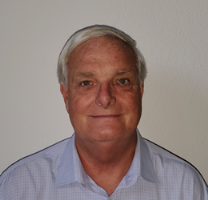The Art of Blending Optimism with Reality
FEATURED PAPER
Dr. Dale S. Deardorff
Engineering Management, CSUN
MSEM, California State University – Tseng College
Northridge, California, USA
Abstract
Modern organizations strive to become more effective and efficient in Project Management activities but they tend to ignore the critical skills required for true success. A Pracademic approach to Project Management requires the understanding of the practical application of essential project management processes blended with realistic cost, schedule and quality constraints. The missing key to project success is the integration of essential skillsets and the unlearning- relearning application of real-world project experiences. These experiences are best learned through project management simulations. The importance of this publication is the clear explanation for why we continue to see organizations and projects make the same mistakes over and over even when they capture lessons learned and use best practices. Having the right person, at the right place, at the right time, doing the right thing is no longer the only challenge. We must add the right person, with the right set of project management skills, with the right lifelong learning objectives to the formula.
Keywords: Pracademic, Project Management Skills, Project Management Simulations, Practical Application, Unlearning-Relearning, Project Experiences, Project Management Research
Introduction
The purpose of this paper is to provide a framework of opinion, enlightenment and advanced learning based on the premise of Pracademic Project Management and current research. The clear definition of “Pracademic” is someone who is seen as both an academic and an active practitioner in their subject area. The term practitioner is not used to describe an expert, but is used more to describe someone who is on a journey of learning and experience. What we must remember is that “Project Management” is a lens of thinking that contains assumptions, interpretations and mental models that force the establishment of paradigms. These paradigms force many project managers into a predictable mindset of thinking that traditionally focuses on the execution of processes. Sometimes this is phrased as “Plan the work, then work the plan”. The philosophy of working harder, not smarter is the focus because there are no official PMI PMBOK steps for unlearning the old way we did things and re-learning new ways prior to working the plan. A quick example would be the project management skills required for an AGILE Project Management team versus a Traditional Project Management team.
The two other features of this publication will be the premise of Optimism and how it is connected to Reality. Too often we have heard about project teams that had poor execution performance indicators for schedule, quality and costs and continued to believe they were going to deliver a project on schedule or under cost. A good definition of these can be seen as the difference between Project Reality (Spundak, M, 2014) and Project Theory.
- Project Reality = a clear description and explanation of impacts and things exactly as they are and passes “the giggle test”.
- Project Theory = a theoretical foundation of processes anticipating success and failures based on what could happen under a perfect set of conditions.
Additionally, it is proposed, by this paper’s author that organizations and the Project Managers (PM’s) working inside them function within the conceptual framework of a Project Pendulum where Optimism is on the left hand side and Pessimism (Alleman, M.,2014) is on the right hand side.
- Project Optimism = tending to see the brighter side of things allowing you to be convinced that things are getting better on a project.
- Project Pessimism = tending to see the worst aspect of things or believe that the worst will happen on a project.
A visual representation of this would look similar to the graphic provided in Figure 1.0 below:
More…
To read entire paper, click here
How to cite this paper: Deardorff, D. S. (2020). Pracademic Project Management: The Art of Blending Optimism with Reality; PM World Journal, Vol. IX, Issue XI, November. Available online at https://pmworldlibrary.net/wp-content/uploads/2020/11/pmwj99-Nov2020-Deardorff-pracademic-project-management.pdf
About the Author

Dr. Dale S. Deardorff
California, USA
![]()
Dr. Dale S. Deardorff worked for Boeing Integrated Defense Systems and Space Propulsion Development divisions as a Project and Program manager for over 20 years. He worked for the Lockheed Burbank “Skunk” works and Aircraft division for almost 10 years and a high technology Valencia California start up for a couple of years. This 30 plus years’ experience is a “Pracademic” blending of commercial, military, government, NASA and high technology organizations. Dale has taught Project Management “on-line” for multiple universities as an adjunct instructor since 2003 and continues to contribute to project management methodologies and philosophies as a current thought leader.
He created the Rocky Peak Leadership Center in 2010 and has helped modern organizations as an enterprise and executive consultant in the areas of thinking methodologies, Innovation and leadership training and facilitation. Dr. Deardorff volunteers with youth leadership programs and supports local youth training in the areas of personal mastery and effective collaboration techniques.
Rocky Peak Leadership Center – www.rockypeakLC.com
Dale S Deardorff contact – d.s.deardorff@gmail.com









